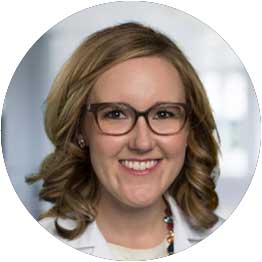 Patients awaiting lung transplant surgery are often stuck between a rock and a hard place. These patients would ideally attend pulmonary rehabilitation, yet they are often too weak to get to the appointments.
Patients awaiting lung transplant surgery are often stuck between a rock and a hard place. These patients would ideally attend pulmonary rehabilitation, yet they are often too weak to get to the appointments.
“They are so frail and so hypoxic that just getting out of the house will wipe them out for multiple days,” said Holly Keyt, MD, FCCP, medical director of the lung transplant program at the University Health Transplant Institute in San Antonio.
This is an issue for many patients with advanced lung disease, but it’s especially problematic for patients of lower income living hours away from the nearest transplant facility, a common issue in a state as big as Texas.
To help these vulnerable patients get better care at no extra cost, Dr. Keyt and her team developed an at-home rehabilitation program known as the GLADIATOR program, which stands for lunG transpLAnt Developing resIliency And sTrength thrOugh Rehabilitation. The program provides tailored exercise, nutrition, and mental health interventions for patients prior to lung transplant.
“We recognized that we had the opportunity to come together to create a program that would hopefully help people become stronger before transplant and have better outcomes afterward,” Dr. Keyt said. “Pulmonary rehab has been shown over and over again to improve the quality of life for people who have advanced lung disease, and this is hopefully lowering the barriers to participate.”
Their data showed that in just six weeks, patients had measurable improvements in skeletal muscle mass and exercise capacity prior to transplant, and there were overall reductions in hospital length of stay, as well as decreases in discharge to inpatient rehab facilities after transplant.
So far, the GLADIATOR program has been limited to about 50 patients. Thanks to a 2025 CHEST Community Impact Grant, Dr. Keyt and her team will now be able to expand the program to all patients in their facility currently undergoing evaluation for transplant, plus those immediately post transplant.
“When we saw the opportunity to apply for the grant through CHEST, we thought, can we extend this program even more? Can we be even more robust in terms of the rehab that we're giving to people?” Dr. Keyt said.
Each new patient will receive exercise equipment, high-quality nutritional supplements, and frequent check-ins from GLADIATOR’s team, which includes pulmonologists, medical assistants, nursing coordinators, dietitians, occupational and physical therapists, mental health therapists, and social workers.
“This project—like all of transplant medicine—is truly multidisciplinary and would not happen without the enthusiasm and dedication of our team, particularly Transplant Dietician Eric Ortiz, Assistant Lung Transplant Director Lillian Espinoza, and the University Health Foundation staff, who helped us apply for the grant,” Dr. Keyt said.
Having advanced lung disease and facing lung transplant surgery can understandably create significant anxiety. Therefore, the GLADIATOR team also made sure to include behavioral interventions that focus on building mental resiliency before and after surgery.
This emphasis on mental health, along with everything else, has led to noticeable mindset changes in patients, Dr. Keyt added.
“Being able to participate in a program like this helps people have some agency in what's happening,” she said. “It helps them feel like they can take some ownership and be involved in their care.”
As they expand the GLADIATOR program, the team will be closely tracking patients to make sure the intervention is accomplishing its goals. This kind of data tracking is important in several ways, Dr. Keyt noted. It’s not just making sure the program is working; it’s making sure it’s working among a population that’s often overlooked in research.
“More than half of our patients are Hispanic and about half of our patients are women, and those patient populations are generally underrepresented in research,” she explained. “I'm very passionate about making sure that these patient stories are told and that they're included when we do research.”